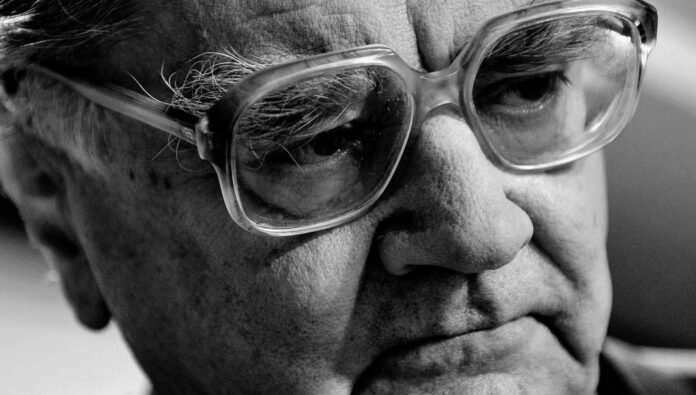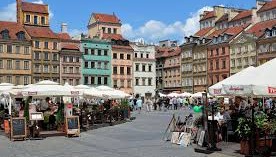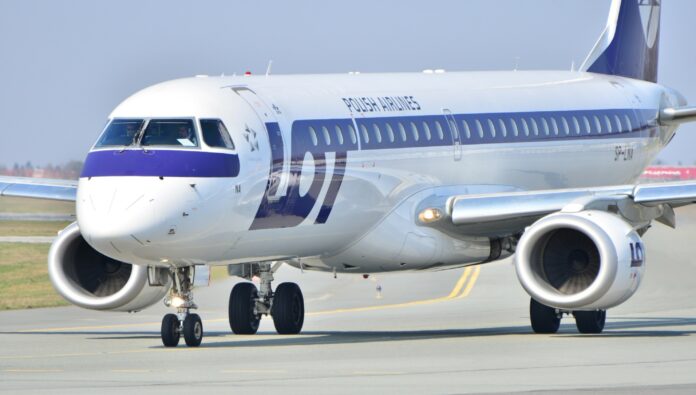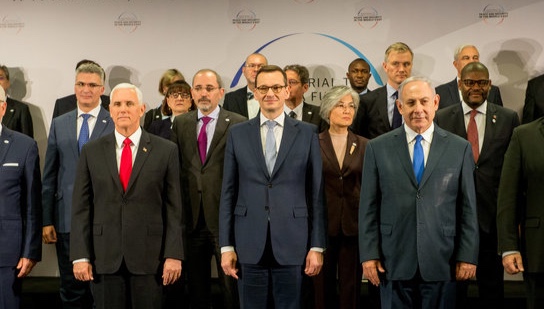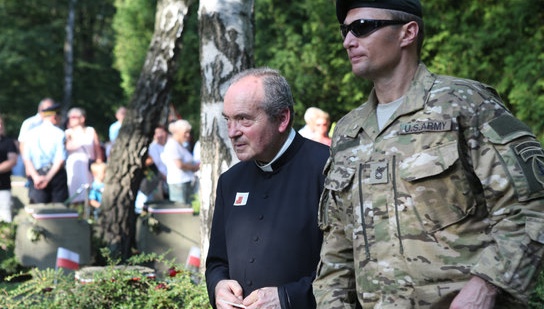How Is Polish Vodka Being Produced?
Entering the museum, one can find many interactive exhibitions, screenings and presentations which tell the history of vodka production throughout the centuries. We can also get valuable information and fun facts about the impact of vodka on the Polish culture and about its international career. The museum is sponsored by the Polish Vodka Association.
Travelling Around Warsaw on the tram
Will Richardsson is taking you on a journey around Warsaw in a tramway… Enjoy!
First democratically elected Polish Prime Minister after the fall of communism has been buried
Jan Olszewski passed away on February 7th at the age of 88. He was responsible for seeing through the agreement which made the Soviet Red Army leave Poland after 49 years of occupation. Prime Minister Olszewski was one of the leading figures fighting for lustration of the political elite following the collapse of the communist system in Central Eastern Europe, trying to steer Poland in a direction which would allow Poles to keep prominent communists and agents as well as informers of the communist security services away from political power.
The funeral ceremony started at 11AM at St. John’s Archcathedral in Warsaw. Polish President Andrzej Duda and many other top officials were present to pay their respect, including one of Olszewski’s closest friends, former Minister of Defence Antoni Macierewicz who stayed by Olszewski’s side in the final hours of his life.
The cortege with the Prime Minister’s body, accompanied by the Polish Army’s Guard of Honor and large crowds of mourners, arrived at the Powązki Cemetary shortly after 3PM.
Jan Olszewski was born in 1930 and turned 14 during the Warsaw Uprising against Nazi Germany. Despite his young age, Olszewski participated in the uprising as a message boy serving in the Grey Ranks organized by the Polish Scouting Organization. His pseudonym during the uprising was Orlik and he actively participated in a successful attack on German position at a school in the region of Bródno.
Following the war, Olszewski went on to study law at the University of Warsaw, from which he graduated in 1953. Shortly before the political thaw known as “Polish October” following the Poznań 1956 protests, Olszewski penned an article in defense of the veterans of the Home Army, the legitimate military underground organization during the Second World War, who after the war were persecuted by the communist authorities.
The communist government quickly closed down the Olszewski’s publication and gave Olszewski a publication ban for having voiced anti-socialist concepts. The event marked the start of Olszewski’s life as a political dissident. He became a member of the clandestine discussion group for intellectuals critical of the communist government known as “Klub Krzywego Koła” (The Club of the Crooked Circle).
Until the fall of communism in 1989, Olszewski used position as a skilled lawyer to defend other political dissidents in court against the regime. One of the most famous cases he would participate in was the 1984 trial against the members of secret service who had murdered one of the main spiritual leaders of the Solidarity movement, the Catholic priest Jerzy Popiełuszko.
Olszewski himself was one of the most prominent members of the solidarity movement and one of its most active legal counsels. He advised Solidarity on legal issues during the 1989 Round Table Talks after which the period of transition of power from the communist regime to democratic state was started. In the following years, Olszewski became highly critical of the way the democratic opposition had acted after the Round Table Talks. He argued that many leaders of the Solidarity movment instead of removing the communist elite from power, had been co-opted by them and now helped them to cement their political and financial influence in the new democratic Polish III Republic
Olszewski became the first democratically elected Prime Minister of the III Republic after the Parliamentary elections of 1991. Olszewski quickly entered into conflict with the political establishment in three key policy issues.
He opposed the neoliberal “shock-therapy” advocated by the Minister of Finance, Leszek Balcerowicz, and swiftly removed him from his cabinet. Olszewski argued that shock-therapy resulted in an unacceptable rise of unemployment while also selling out assets of the Polish state for pennies to private interests.
Secondly, Olszewski clashed with President Lech Wałesa on the issue of the removal of Soviet troops from Polish territory and on the position whether Poland should join NATO or not. Olszewski criticized Wałesa for planning to sign an agreement with the Soviet which would allow them to remove the bulk of their troops from Poland but retain certain presence in the military bases they had created in Poland after 1945. Olszewski made it clear to Wałesa that the President didn’t have the authority to sign such an agreement and that it would have sabotaged Poland’s plans on joining NATO.
The Soviet Union collapsed in December 1991, the same month that Olszewski was elected Prime Minister. It sped up the decision by Poland declare in official state documents the country’s intention was join NATO and remove all Soviet forces from Polish territory. The Polish stance was not received well in the newly created Russian Federation which still viewed Poland as laying within its sphere of influence. President Wałesa seemed to support the Russian position as he travelled to Germany in March 1992 and declared that he wanted Poland and other countries in Central Eastern Europe to create an organization called NATO bis instead of joining NATO itself.
The new organization would be a military alliance consisting of former Soviet satellite states in Central Eastern Europe and would receive security guarantees by both the U.S. and the Russian Federation. Wałesa’s announcement had not been consulted with Olszewski’s governemnt and came right before a planned state visit of Olszewski to the U.S. Walesa’s announcement had made Poland come across as internally divided and not ready to join NATO.
The third policy area in which OIszewski clashed with Wałesa as well as large parts of the liberal and socialists factions on the political scene concerned the issue of lustration. The lustration process was meant to shed light on the individuals who had participated in the crimes of communist regime or served as agents and informants of the security services during communism. It could be considered a Central European equivalent of the de-Nazification process which took place in Germany following the Second World War.
Czechoslovakia was first out with legislation on lustration in October 1991. Olszewski’s government followed suit by passing a lustration bill which had been presented in parliament on May 28th 1992. A couple of days later, the Minister of Interior Antoni Macierewicz released a list of names of informers having worked for the communist secret services ,which had been compiled based on information available in classified state archives.
President Wałesa’s name was on the list together with the Speaker of the Parliament and 62 other names of members of the government, parliament and the senate.
Making the names of the informers public was one of the last acts of Olszewski’s government which didn’t survive a vote of no-confidence later that night. The decommunization bill which had started the process of lustration was later declared unconstitutional by the Constitutional Tribunal.
Olszewski was replaced as Prime Minister by Waldemar Pawlak, a political ally of President Lech Wałesa, and never returned to a high position in Polish politics again. However, he did form a new party which barely made it across the parliamentary threshold in the parliamentary elections of 1997. He did also serve as a presidential adviser to Lech Kaczyński between 2006 and Kaczyński’s death in the Smolensk Air Disaster on April 10th 2010.
As Poles mourn the loss of the first democratically elected Prime Minister of the Polish III Republic, the legacy of Jan Olszewski lives on. His stance on key policy issues has been vindicated as years have passed by. Polish public opinion has veered in a conservative direction in recent years and Olszewski’s stance on issues such as the Round Table Talks, shock-therapy, NATO-bis and lustration is now shared by large parts of society.
It took more than 20 years after the fall of Olszewski’s government but the national conservative ideas he professed did eventually take root in Polish society and particularly with young Poles. Regardless of his short time in office, the late Prime Minister will surely be remembered as one of the great political figures who lead Poland through the transformation from a communist regime to a democratic state.
William Richardson and Artur Górniewski explore the history of Poland in Warsaw's Old Town.
The Old Town is a bustling tourism hub, with cobblestone alleys and medieval buildings reconstructed after WWII. At its heart is Rynek Starego Miasta, a busy square lined with burgher houses and upscale Polish eateries. Nearby, St. John’s Archcathedral dates back to the 14th century.
What can Polish travelers expect from his first visit to an U.S. airport? LOT Polish Airlines explains
LOT Polish Airlines has launched the campaign “Without visas to the USA”, aimedto encourage as many people as possible to apply for American visas and to do so correctly. For the purposes of the campaign, the website www.bezwizdousa.pl has been started, where it’s possible for travllers to get familiar with how to meet the required criteria for being granted a visa. With the campaign, LOT also helps Polish passengers to understand what is required from them once they land in the US. So what does a first-time traveller need to know?
We have landed happily in the USA. And what now? Only the last hurdle at the custom and immigration control and all the opportunites the United States has to offer will be waiting for us.
In addition to picking up your luggage, you will have to talk to an immigration official. It’s a standard procedure that everyone who comes to America passes through. It does not matter if they come with a visa or from a country which is encompassed by a visa-free travel program – a conversation is obligatory and it will always take place in English.The situation in which Polish passengers are denied entry into the US is extremely rare – people who have correctly defined the purpose of their trip have no reason to worry. However, if it turns out after arriving in the US, that our actual reason for arrival differs
from the one declared (for example, if there is a suspicion that you have arrived on a tourist visa but plan to find a job), an immigration officer may come to the conclusion that you have violated immigration regulations. Then the traveler may receive a decision to refuse entry to the USA and is sent back to the country of origin. Severe violation of the law, may even result in a temporary ban on entering the US. Otherwise, you will be able to appeal the decision, but only after returning to Poland by filling out the form on the website of the Department of Homeland Security (www.dhs.gov/trip).
An immigration officer will definately be interested in the your customs declaration that you have filled out on the plane. A passenger can also expect a couple of standard questions, for example about the places you plan to visit in the U.S. There is nothing to fear: most of the questions have already been answered when you filled the DS-160 document necessary for being granted a visa. The official will also take your fingerprints. At the official’s request, place your thumb and four fingers on the special glass panel. A photo of you will also be taken on the spot. Then just a stamp in your passport and you have passed through immigration.
Take your passport with a long-awaited stamp, your checked baggage and at the customs control point hand over the customs declaration. It may happen that you will be randomly selected for a personal check. It’s also a standard procedure that you do not have to worry about. Just remember not to bring things with that are forbidden to the US, usually the main problem is different kinds of food. When you leave the departure hall, the United States is open for exploration and it is up to you what you want to do and see in this great and beautiful country.
US to EU in Warsaw: Abandon Iran Nuclear Deal
The United States Vice President, Mike Pence, didn’t pull his punches at Thursday’s session of the two day conference entitled the “Ministerial to Promote a Future of Peace and Security in the Middle East” being held in Warsaw, and attended by foreign ministers and senior officials from 63 nations. Departing from his prepared text, Pence demanded that France, Germany and the United Kingdom give up the Joint Comprehensive Plan of Action (JCPOA) and stop trying to break US sanctions on Iran.
“The time has come for our European partners to withdraw from the Iran nuclear deal and join with us as we bring the economic and diplomatic pressure necessary to give the Iranian people, the region and the world, the peace, security and freedom they deserve,” Pence said in his speech.
The conference which was orgainsed jointly by the US and Poland was originally planned to focus on Iran, although following criticism the US State Department denied that it was aimed at any single country. However, comments made by Israeli Prime Minister Benjamin Netanyahu and others before it started made clear that one of the goals of the Warsaw comference was to rally governments against Tehran. Pence’s speech put this beyond doubt.
”The universal view of those who spoke last night at this conference was that Iran has actually become more aggressive since the JCPOA was signed, not less,” Pence said. “The United States reimposed sanctions that should never have been lifted in the first place.” While those Middle East countiries that had recently put pressue on Iran were praised by Pence, harsher words were directed at the Europeans.
“Sadly, some of our leading European partners have not been nearly as cooperative — in fact, they have led the effort to create mechanisms to break up our sanctions,” Pence complained. “Just two weeks ago, Germany, France, and the United Kingdom announced the creation of a special financial mechanism designed to oversee mirror-image transactions that would replace sanctionable international payments between EU businesses and Iran.”
“They call this scheme a Special Purpose Vehicle,” Pence said. “We call it an effort to break American sanctions against Iran’s murderous revolutionary regime. It’s an ill-advised step that will only strengthen Iran, weaken the EU and create still more distance between Europe and the United States.”
The European powers, and EU officials in Brussels, insist that the JCPOA is worth preserving because it has successfully halted Iran’s nuclear weapons program — an assertion that Pence rejected in his speech. Pence said that the US is prepared to intensify sanctions to bring the Iranian regime into submission, while the EU has in the past stated that it views the reimposition of sanctions as illegal.
Speaking later, the Polish prime minister Mateusz Morawiecki, described the conference as a “huge step in promoting a future of peace and security” in that conflict-ridden region. Choosing to concentrate on the wider scope of the conference, which included issues such as missile proliferation, energy security, emerging cyber-based threats, counterterrorism, migration crises and humanitarian aid, Morawiecki said that Poland was “committed to play its role in addressing refugee and humanitarian challenges, but most of all peace challenges in the Middle East.”
He told the conference “to avoid conflicts that result in refugee and humanitarian crises, we must ensure stability and sustainability in the region”, adding: “And we must employ politics when we talk about it – because peace is, in the end, a political good.”
In a joint opinion piece published by CNN on the eve of their co-hosting the conference, Poland’s foreign minister Jacek Czaputowicz and US Secretary of State Mike Pompeo said they sought “solidarity from all countries this week in Warsaw” and that “our goal is to forge stronger partnerships and advance our common security goals in a region riddled by conflict.”
After Mike Pence’s speech, it seems that US EU solidarity on Iran is in rather shorter supply than might have been hoped. On Iran, Poland is now caught between its position as, in Mike Pence’s words “one of our most crucial allies and a major player in world affairs” and its membership of the EU. It is a fine line to tread, but if the birthplace of “Solidarity” is able to help restore US EU solidarity on Iran, Poland will have gained much from the conference.
History Of The Polish National Opera
Opera was first brought to Poland 30 years after appearing in Florence, by Royal Prince Ladislaus IV Vasa. In 1628 the Prince invited the first Italian opera troupe to Warsaw. For more than 170 years the Grand Theater has been the leading opera and ballet theatre in Poland. The process of building it started in 1825 and ended in 1833. During WW 2 it was almost completely ruined.
Poland Daily Travel – The Royal Route
The Royal Route in the capital of Poland was once a communication route that led southward from the Warsaw’s Old Town. It begins at Warsaw’s Castle Square and ends in Wilanów.
AKO awards its King Przemysław’s Medal to Rev. Stanisław Małkowski
The President Lech Kaczynski Civic Academic Club (AKO) in Poznań has since 2011 awarded its medals to outstanding Poles in recognition of their contribution to national community in politics, culture, arts, religion, science and other fields. The medal bears the name of King Przemysław II, who renewed the Polish monarchy in the XIII century.
Among the recipients of the medal, which is awarded annually, are two former Prime Ministers, the late Jan Olszewski, and Jarosław Kaczyński, leader of the ruling Law and Justice party.
This year’s medal has been awarded to the Rev. Stanisław Małkowski from Warsaw, a former chaplain of the “Solidarność” Trade Union, who has a long and honourable record of opposing the communist regime and supporting religion and patriotic activity.
The medal awarding ceremony will take place in Poznań on Saturday, 23 February. On 4 p.m. a mass will be said at the Franciscan church at Wzgórze Przemysła (near the Market Square). Immediately afterwards, at 5 p.m. the awarding ceremony will be held at the Działyński Palace in the Market Square.

